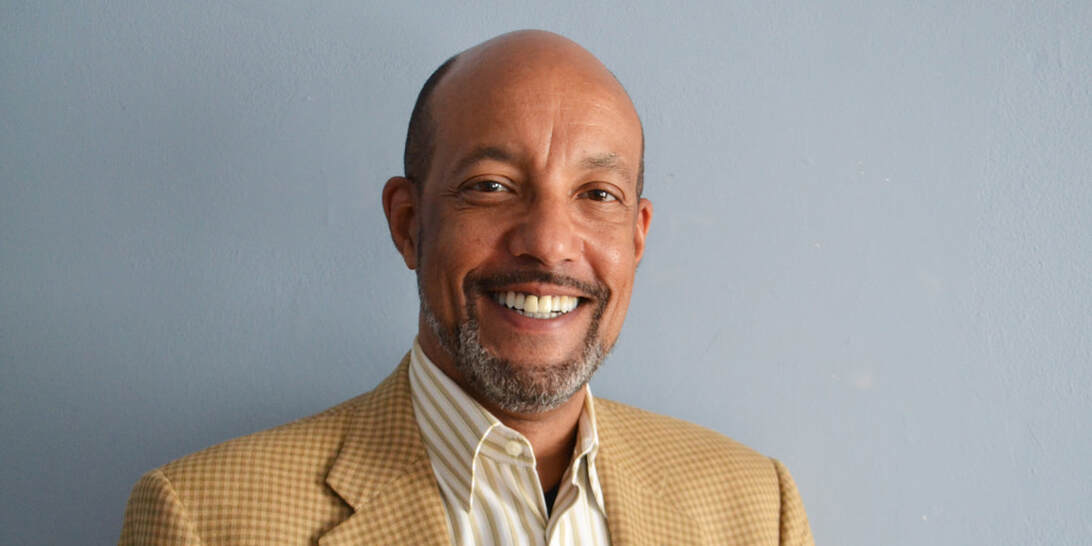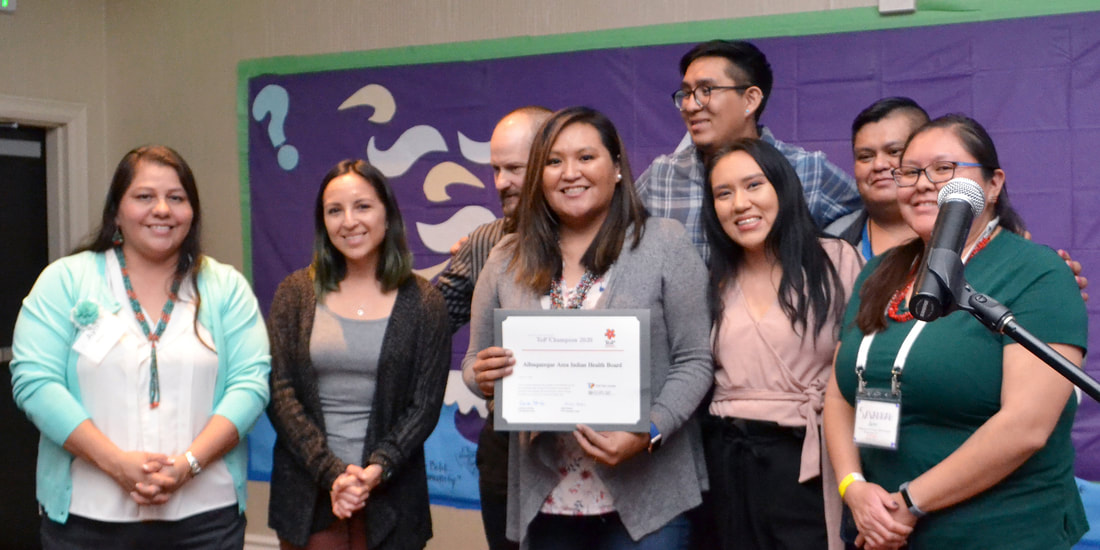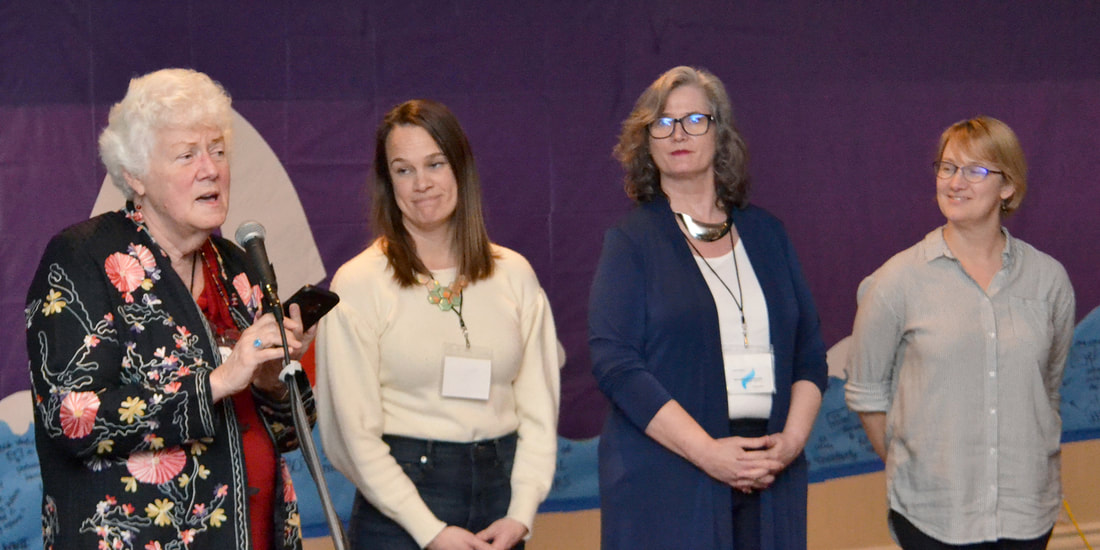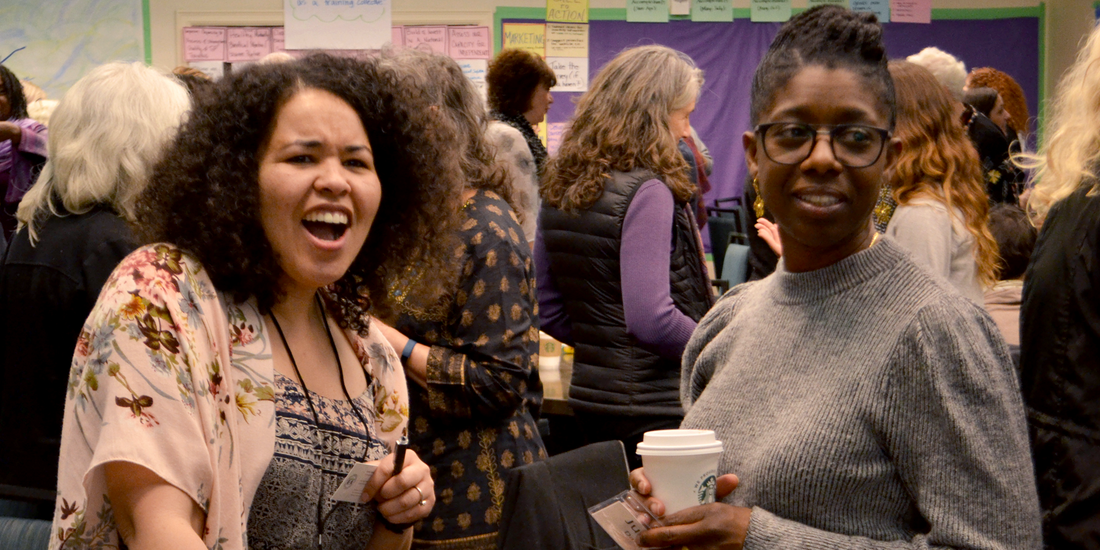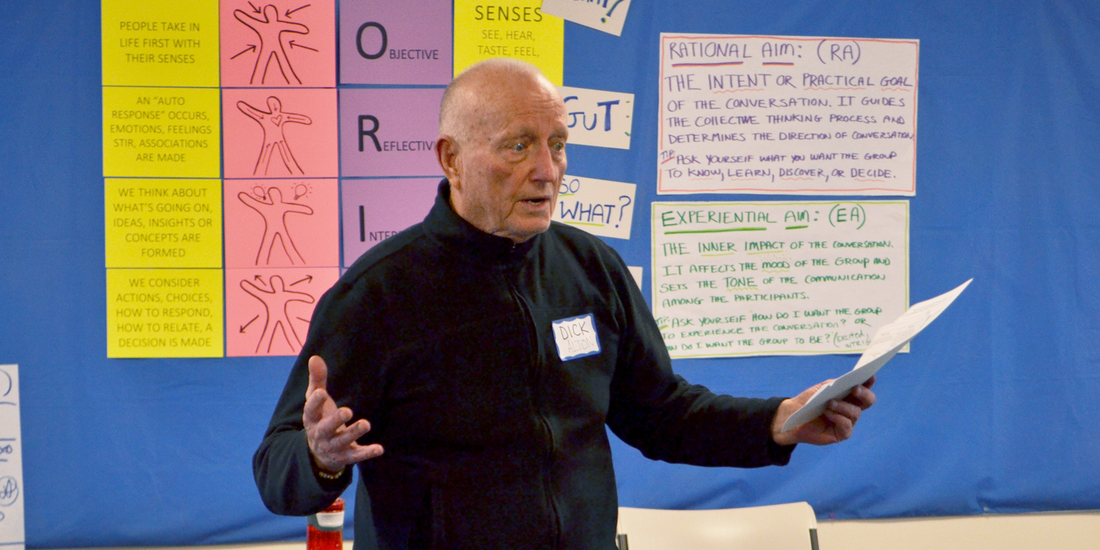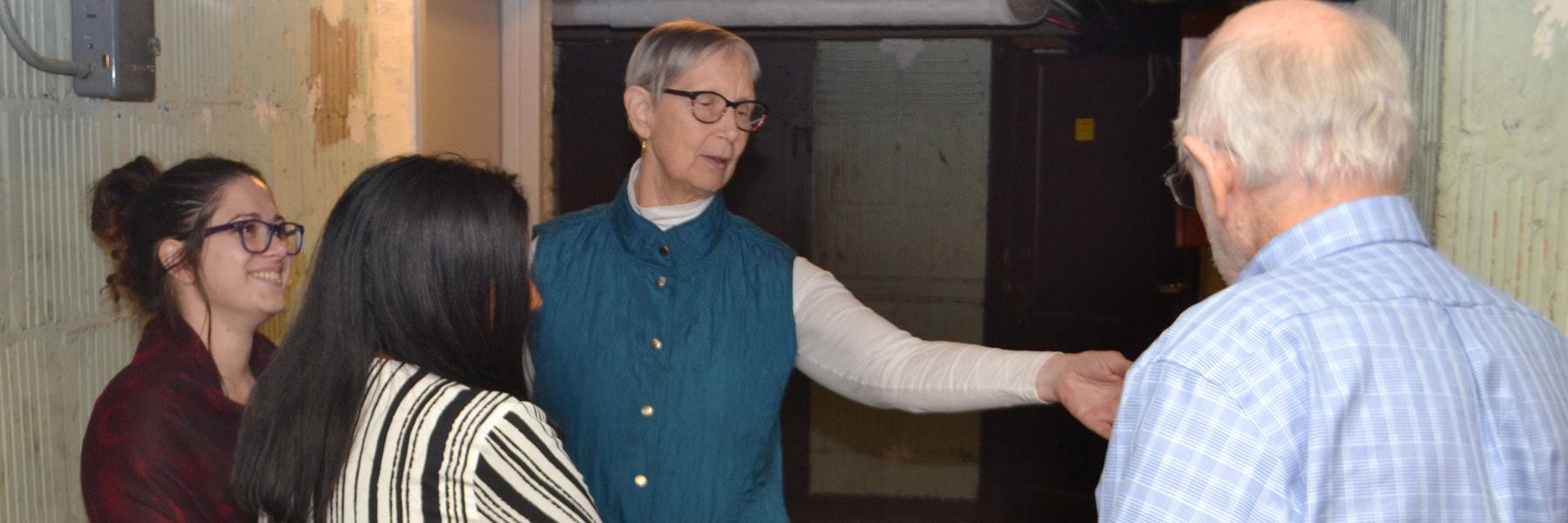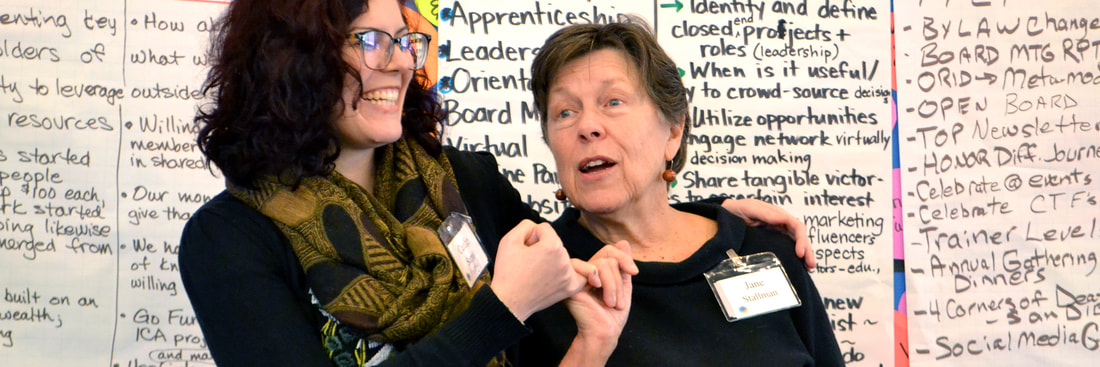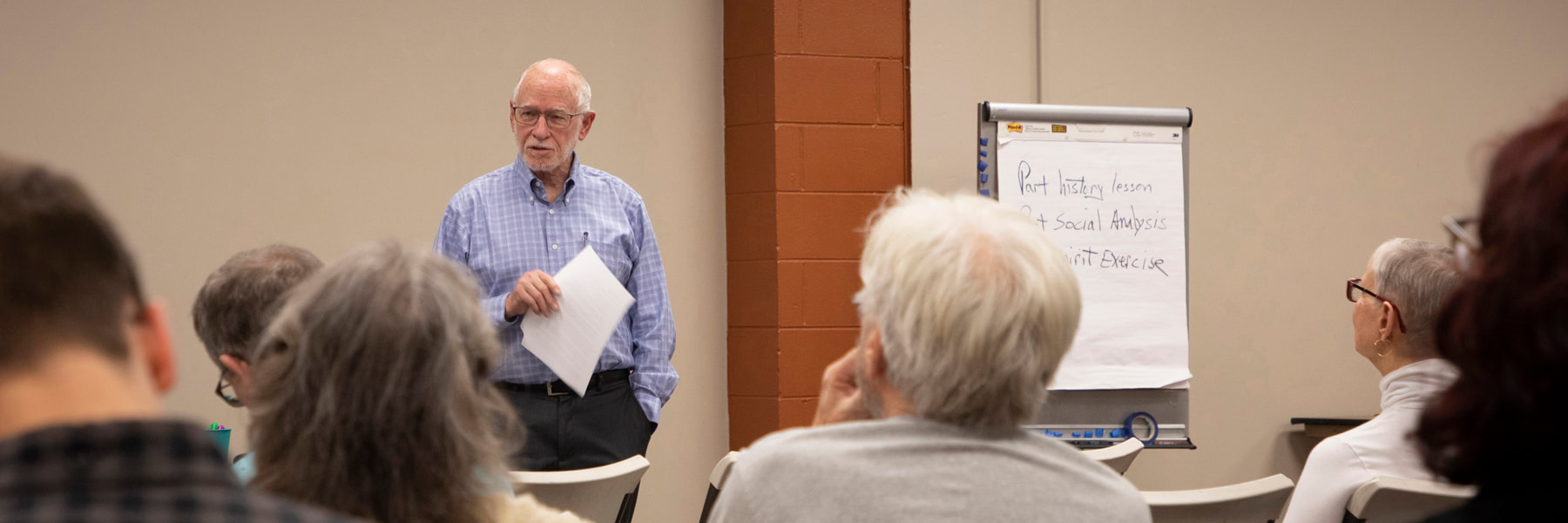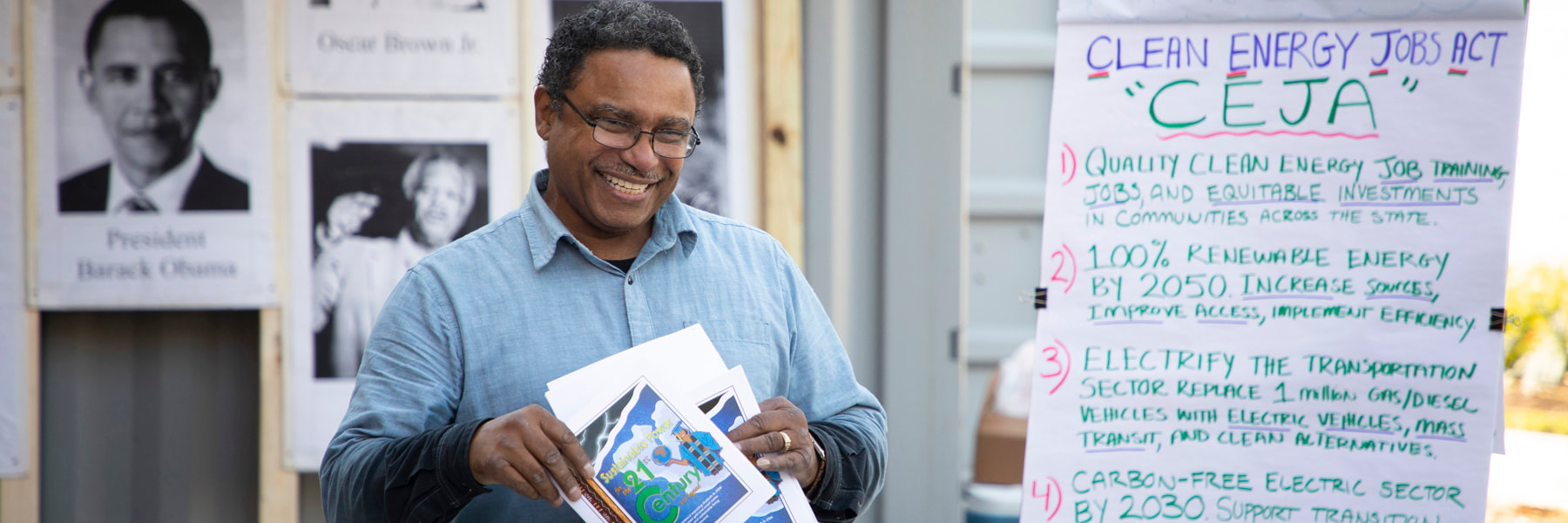When I look at the shift in perspective that I experienced in participating in ICA methods, when I’ve engaged meaningfully with people that are steeped in the practices and principles of ICA, it warms my heart to know that people can be grounded in community, radically caring for one another, and making progress. I feel like ToP brings hozho—balance—to my life. It helps me a listen, but also opens opportunities for me to share my voice and to be heard and to just be a better human being, and to be a better mother, a better wife, a better colleague, a better friend, so that's what ToP is to me. It brings balance to my life. In the days before the ToP Network Annual Gathering, three facilitators completed assessments and became Certified ToP Facilitators (CTFs). Congratulations to Jennifer Allen of Long Beach, CA, Jasmine Jetton-Gonzales of Deerfield, IL, and Diana McCall of Asheville, NC!
Certification is a long journey of skill-building, practice, and reflection. Candidates create and submit extensive portfolios that showcase their competencies and application of ToP methods, get structured feedback from mentors and clients, and are supported by a coach and a community of practice. Upon completion of the final assessment, facilitators are welcomed into the global community of ToP practitioners. For facilitators navigating the waters of social change, a community of fellow practitioners is a port in a storm. The Annual Gathering organized by the ToP Network is the premier event for established members and curious newcomers alike to learn about, be inspired by, and build community around our Technology of Participation (ToP) methods. From January 11 through 13 of 2020, the 29th Gathering in Walnut Creek, CA explored the theme “Waves of Change” as a metaphor for the dynamic times in which we live and the questions we each face today.
“One Earth Film Festival organizers expect audiences to leave screenings being more enlightened and aware of environmental issues. Organizers also want audiences to be ready to take action for the planet when they leave a screening. To get audiences to that point, they need to digest a film’s information, then connect it to everyday life. That’s where trained facilitators come in. Facilitators are key pieces of the festival, helping attendees develop a more meaningful understanding of the many important topics covered during a screening,” writes Shelby Best in a recent story from One Earth Film Festival (OEFF), the Midwest’s premier environmental film festival.
The ICA Global Archives is a robust, volunteer-driven project working to connect ICA’s past with future generations by transforming more than 60 years of documentation of ICA programs, projects, methods and training into a website that will be accessible to anyone in the world.
For years, the archival work was inextricably linked to the premises of ICA GreenRise, which house a significant part of ICA’s collected works. Each spring and fall, ICA colleagues would travel from around the United States and beyond to attend week-long working meetings known as Sojourns.
“The power of storytelling is a driving force that engages communities. Stories have been the basis of culture from the beginning of time,” said Adam Gebb, Executive Director of Andes Amazon Conservancy, during the first in a series of webinars on climate change and environmental sustainability co-sponsored by ICA and the Center for Strategic Facilitation (CSF).
Beginning with the premise that “human-caused climate change is a defining issue of our time,” the Success through Participation: Environmental Sustainability Webinars, or “eco-webinars”, was launched to facilitate a multicultural, multinational exchange between leaders and projects who are working to address climate change.
“Race has to do with the ecology of human community, as does racism. It’s an ecological issue because it has to do not just with the ecology of human communities, but to our relationship with other biological communities,” said antiracism trainer James Addington during a talk on his new book, Tragic Investment, at ICA GreenRise on November 21, 2019.
That same evening, in the same room, we also hosted the second-ever screening of Monty and Rose, a film that “tells the story of a pair of endangered piping plovers that successfully nested at Chicago's Montrose Beach in the summer of 2019, the first of the species to nest in Chicago in 64 years.” Over 500 Illinoisans gathered at the State Capitol in Springfield during 2019 fall veto session of the Illinois General Assembly to show support for the Clean Energy Jobs Act (CEJA). The energetic supporters, who filled several buses and crowded the rotunda, were only a fraction of the more than 10,000 “community cosponsors” who have pledged support for the bill. Many of those community voices have been activated through nearly 100 community conversations as part of the Illinois Clean Jobs Coalition’s (ICJC) Listen. Lead. Share. (LLS) campaign.
LLS conversations are designed to raise awareness about CEJA and gather additional feedback from residents on how to improve the bill. ICA joined the campaign this year, organizing three LLS events in Chicago ahead of the fall veto session. Our Chicago Sustainability Leaders Network meeting on December 3rd, 2019 at the Field Museum began with the question: “What passions are you bringing into 2020?” Instead of going around and answering verbally, they were asked to submit up to three words on Mentimeter, an app that collects and displays responses in real time. As people filtered in, their passions were added to a growing word cloud at the front of the room.
|
|
4750 N Sheridan Rd, Chicago, IL 60640
773 769 6363 x 335 |
Copyright 2022. The Institute of Cultural Affairs. All rights reserved.

